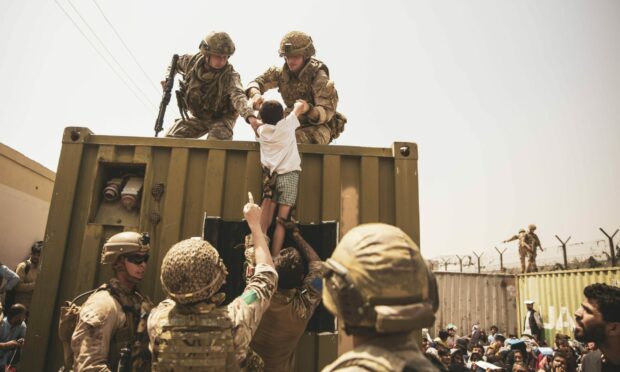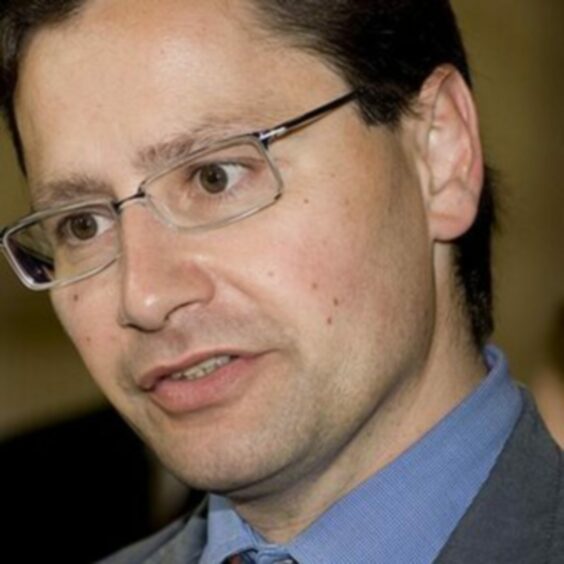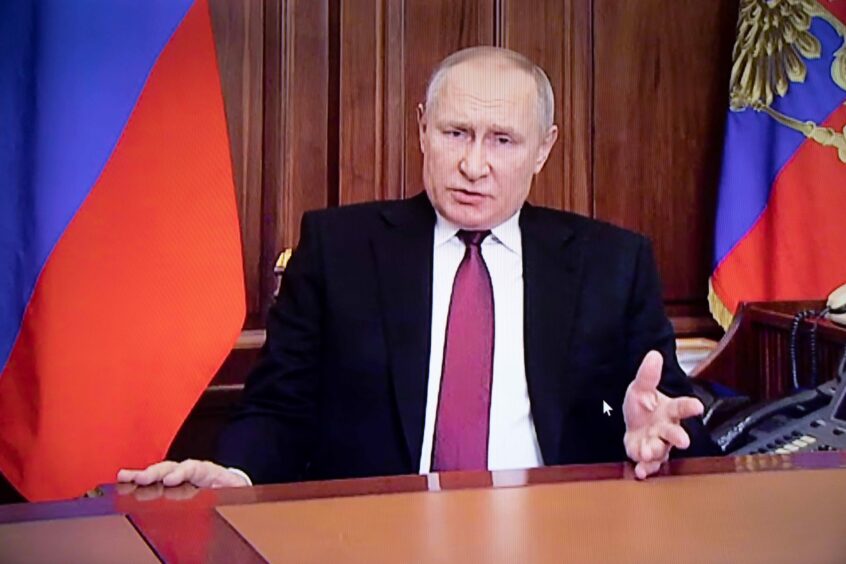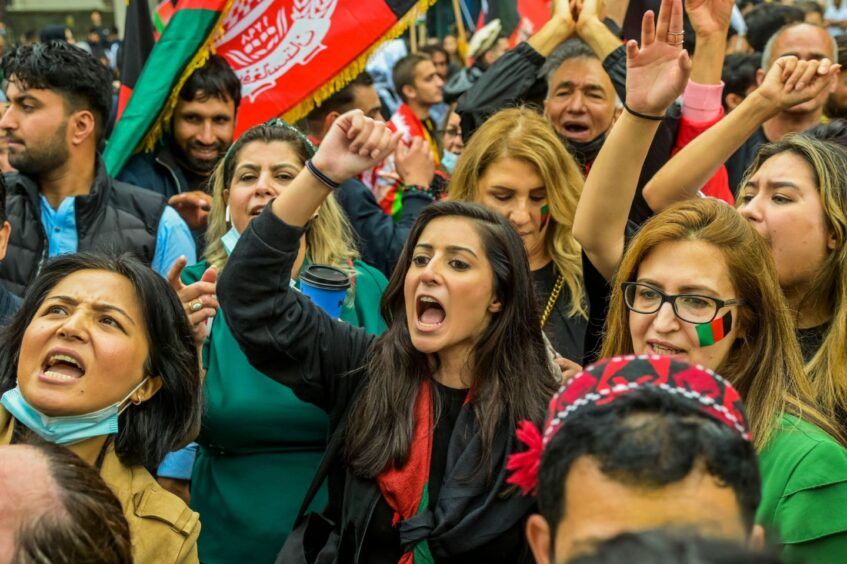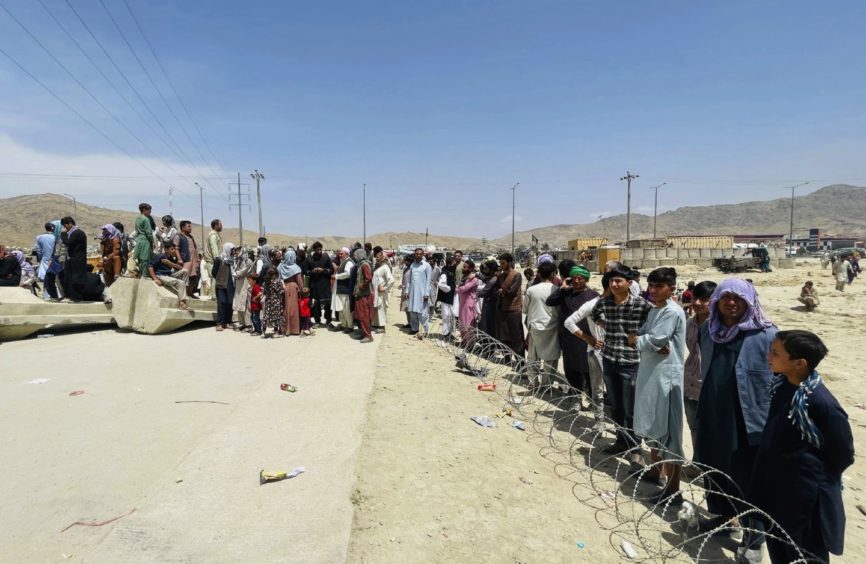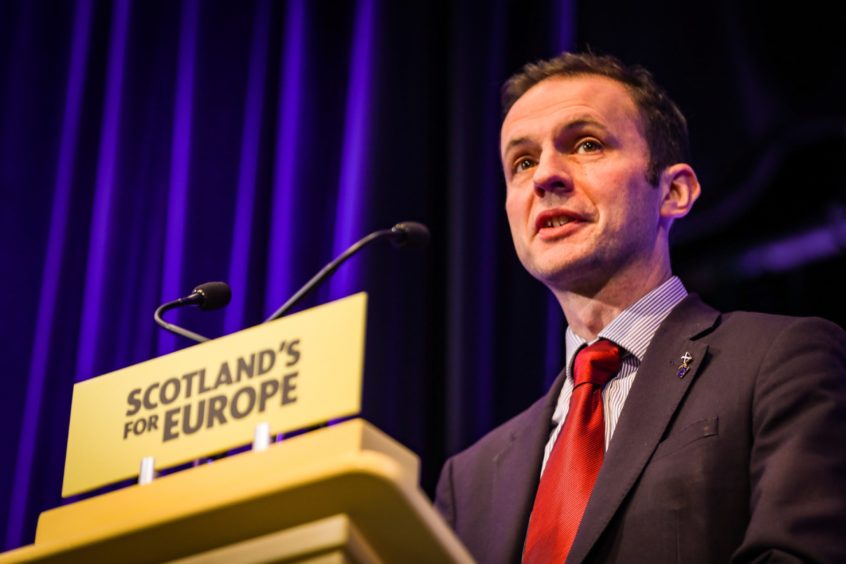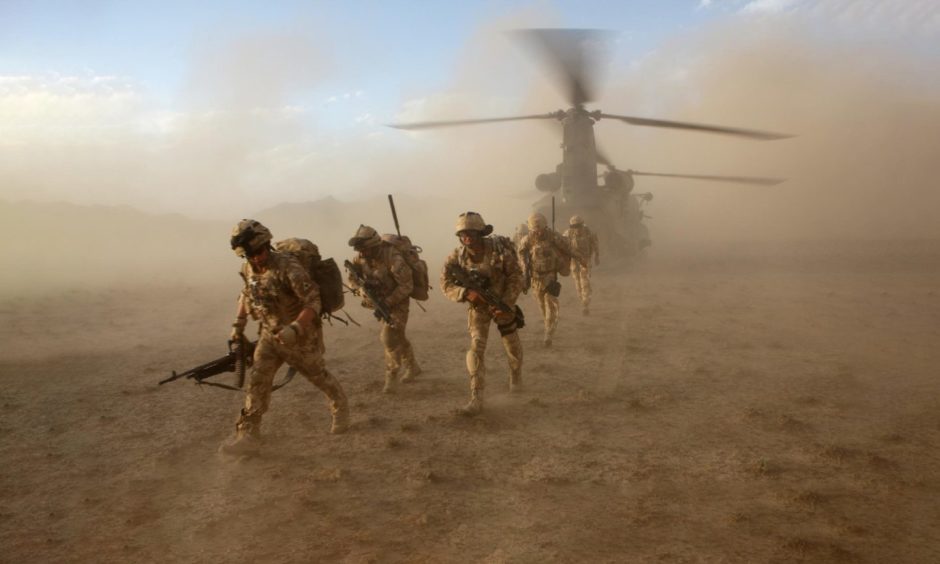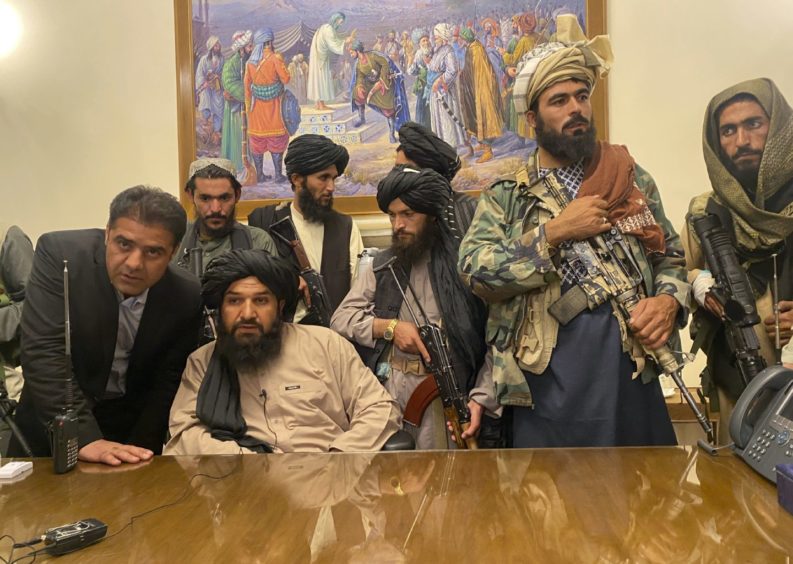When Taliban forces took control of Afghanistan’s capital city of Kabul on August 15 2021, it marked the end of the Western intervention that had begun nearly 20 years earlier with the US-led post-9/11 invasion.
The fall of Afghanistan triggered a seismic shock in the West, where US President Joe Biden announced an end to America’s intervention in conflicts overseas.
In Afghanistan itself, it produced terror for the future for those who had worked with and grown up under the coalition-supported administration.
The country has spiralled into economic collapse and famine.
But did the nature of the West’s withdrawal from Afghanistan effectively give a massive green-light for Russian president Vladimir Putin to go ahead with his devastating invasion of Ukraine?
Distinguished professor of history Dr Brian Brivati thinks so.
The former professor of contemporary history at Kingston University, said the cessation of a 20-year “interventionist” stance by the West in Afghanistan in favour of “isolationism”, influenced Putin’s decision to invade without fear of military consequence.
‘Cut and run’
Dr Brivati, who left Kingston University to become director of the John Smith Memorial Trust and implement capacity building programmes for the UN and for the UK government globally, said Biden could have rejected Donald Trump’s controversial Doha Agreement.
This provided for the withdrawal of all foreign forces from Afghanistan in return for a Taliban pledge to prevent al-Qaeda from operating in areas under Taliban control.
However, the “unnecessary” decision to “cut and run” and follow-through with Trump’s timetable for a US-end game in Afghanistan played into Putin’s hands.
“We should have been talking about Ukraine since 2014,” Dr Brivati tells The Courier.
“But if Biden had changed tack – shown that he didn’t accept the Doha deal, continued negotiations with the Taliban, and stepped up the military operation against the Taliban to ensure they couldn’t take control of that number of Afghan cities that quickly – that would have sent a very clear message to Putin that the international order had changed post Trump.
“Instead, Biden endorsed the deal, accelerated the timetable, messed up the (Afghanistan) evacuation and sent the message that business was going to be usual as it was under Trump which encouraged Mr Putin to do what he’s now doing.
“Putin’s wanted to do this since 2014. I’m surprised in some ways he didn’t do it sooner, that he didn’t do it under Trump. But clearly he can see now there’s nothing to stop him.”
Support for Ukrainians
Dr Brivati has spent much of recent weeks supporting friends and colleagues in Ukraine.
One reason why no one in the western political spectrum has been talking about going to war to support a war of self-defence in Ukraine is because Putin has nuclear weapons.
But the other reason, says Dr Brivati, is we are “no longer in that business of getting involved”.
“We now live in a world of isolationism and we are prepared to allow regimes to basically do whatever they like to their own people within certain silos,” he says, “whether that’s the Chinese silo, the Russian silo or whatever.
“Now that may be inevitable because of the failure of doing the opposite which was to intervene.
“But what I am saying is there are consequences of living in an isolationist world.
“One of those consequences was the abandonment of Afghanistan to the Chinese sphere of influence.
“The abandonment of 10s of thousands of people to be left behind, the abandonment of women and girls education and dreams of a generation.
“Maybe that’s the price we want to pay because we don’t believe it’s any of our business anymore. That may well be right. I don’t know.
“But what do we do about the current genocide taking place in China right now?
“What do we do about the invasion of a sovereign country by Russia?
“We don’t have an answer. Just sanctions and so on.”
Sombre collection of essays
Dr Brivati’s new book – Losing Afghanistan: The fall of Kabul and the end of Western Intervention – features 21 critical essays by analysts, politicians, soldiers, commentators and practitioners that explain what happened in Afghanistan and why, and what the future holds both for its people and for the future of liberal intervention.
All proceeds from Losing Afghanistan are going to the Afghan Writing Project at Untold Stories which supports women writers in Afghanistan.
Significantly, however, Losing Afghanistan is unusual in that it brings together voices for the first time from across the spectrum.
They range from human rights people who lived and worked in Afghanistan, to Afghan voices, as well as people who served in the coalition from the original intervention, military, intelligence agencies and politicians who were critical supporters of liberal interventions.
“The book is forward looking in the sense that, primarily Afghanistan is now a humanitarian disaster,” says Dr Brivati.
“The Taliban don’t know how to govern because the West has withdrawn a significant amount of aid.
“It’s also a different kind of humanitarian disaster because for 20 years we were building the expectations of a generation – particularly women and girls – and we’ve basically just said, ‘well sorry about that – the lives you were expecting to have you are not going to have.
“However, the book is also backward looking. Why did we do it? What are the consequences now in places like the Ukraine? The end of liberal interventionism and a new age of isolationism?”
No stranger to Afghanistan
As an historian, Dr Brivati is no stranger to Afghanistan’s long history, from teaching 18th/19th century imperial history in the early modern period, through to being a Blairite in the ‘90s and being a standard-bearer for liberal intervention and the “rightness” of the military in Afghanistan.
His relationship with Iraq is “slightly more complicated”, he says.
But 20 years on from the coalition invasion of Afghanistan, he asks himself “what was it all about?”
“If it wasn’t about nation building, because we didn’t have the strategic patience to stay, then what on earth did we think we were doing?” he asks.
“What should this teach us about our foreign policy going forward?
“What should the West’s role be and how should we re-think that?
“Very personally for me, I marched to the drum of Tony Blair’s interventions, drinking the Cool-aid of nation building and democracy building.
“But 20 years on, it’s been a complete failure in Afghanistan. I don’t think it’s been a complete failure in Iraq, but I think our post-war record there is as bad as our post-war record in Afghanistan.”
‘Post-Trump age of isolationism’
Dr Brivati worked for 10 years in Iraq and other conflict zones.
Having been a professor of human rights and working on security and defence too, he “kind of bridges these two worlds in quite an unusual way”.
Last August, as Afghanistan fell, he and his publisher decided to contribute to the debate with a book that brought together everyone from the former Prime Minister of Iraq to St Andrews University Professor of International Relations Stephen Gethins with all points covered in-between.
Dr Brivati says we are now living in a “post-Trump age of isolationism and elite self-national interest, where internationalism and international law and the international structures that create collective security, and the notion of sovereignty itself have been systematically undermined.”
At the same time, on a human level, people still care when they see citizens of Kiev being bombed or starving children in Afghanistan.
What’s changed, however, is that people “won’t see that it’s anything to do with them unless their leaders make the argument”.
Failures of the West
Dr Brivati says there are some “very thoughtful” pieces in the book about how interventions could be handled differently.
Six-month rotations for military and two/three year rotations for diplomats contributed to a failure of nation building.
However, another major problem in Afghanistan has been corruption and continuation of the black economy heroin trade.
So what can be done about it?
One suggestion is that if religion is the underlying ideology of the Taliban regime, then get them to live up to its ideals.
While it doesn’t deal head on with gender issues, it could have a huge influence on moderating how the Taliban operate.
But there’s a problem. This optimism is not matched by others who say the real winner in Afghanistan is China.
They have a “strategic patience” that’s missing in the West, and they are now going to be the big economic winners.
“The problem with that is China rapes countries of natural resources and the elites will benefit massively,” says Dr Brivati.
“So there’s very little incentive for the Taliban to govern well if they are being told by the Chinese ‘don’t worry about your mines, don’t worry about your natural resources – Chinese companies will come in and do the work, extract the profit and pay you a percentage’.
“That on top of what heroin makes for a black economy is a million miles from what’s being talked about with an Islam-inspired humanitarian based economy.”
Taliban: Five years of government?
Dr Brivati adds that, interestingly, a former minister of the interior reckons the Taliban have got about five years of government because actually the business of government is “quite boring and difficult”.
“These guys didn’t really sign up for that,” he says, “and so you could see a kind of creeping meritocracy of western trained people coming back in to actually start running the ministries and infrastructure and that would slowly undermine the Taliban or would improve the position of the people somewhat.
“Whether they want to govern in the long term is unclear, but the problem then is the danger you end up with a failed state which breaks up into its constituent tribal and geographic parts which is inherently unstable.
“Given where Afghanistan is between India, Pakistan, China and Russia, you really don’t want that region to be destabilised again. The geopolitical mess is immense and the humanitarian mess is immense.”
- Losing Afghanistan by Dr Brian Brivati is published by Biteback Publishing, £20.
